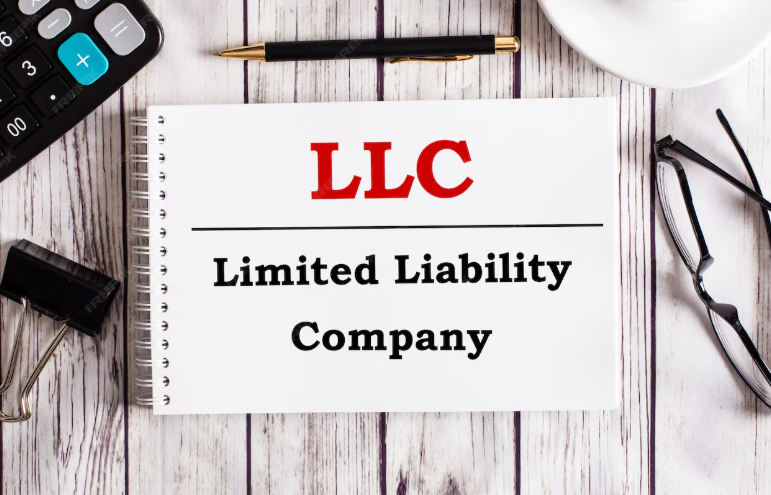If you’re a non-U.S. resident looking to do business in America, one question always pops up: LLC vs No LLC for Non-U.S. Residents with ITIN, what’s the smarter move?
You know you’ll need an ITIN (Individual Taxpayer Identification Number) to pay taxes in the U.S. But should you stop there, or go the extra step and create an LLC? Both paths are possible, but they serve different needs. This guide unpacks the differences, benefits, and limitations so you can decide what makes sense for your situation. Without getting lost in IRS jargon.
What Is an ITIN and Who Needs It?
First things first, let’s demystify ITIN.
ITIN stands for Individual Taxpayer Identification Number. Think of it as the IRS’s way of identifying people who need to pay U.S. taxes but aren’t eligible for a Social Security Number.
You’ll need an ITIN if you’re:
- Earning money from U.S. sources (like freelance work, real estate rental, or stock dividends)
- Opening a U.S. bank account that requires tax reporting
- Filing a U.S. tax return, even as a nonresident
Important note: Having an ITIN does not automatically mean you have a business. It’s simply your ticket to pay taxes legally in the U.S. You can have an ITIN with or without an LLC.
Operating Without an LLC
So, what happens if you just stick with an ITIN?
Basically, you’ll operate as an individual. That means all income you earn from U.S. sources is reported under your personal name.
Benefits of Going ITIN-Only
- Less paperwork. No state filings, no LLC setup costs.
- Faster start. You can start earning and reporting U.S. income as soon as your ITIN is active.
- Good enough for passive income. If your money is coming from interest, dividends, or royalties, you may not need the added complexity of an LLC.
Limitations of Going ITIN-Only
Here’s the kicker:
- Personal liability. If something goes wrong like, you get sued by a client, your personal assets could be at risk.
- Less credibility. U.S. partners and clients often prefer working with a registered company rather than an individual abroad.
- Missed tax deductions. Certain business-related write-offs are easier to claim through an LLC.
Think of ITIN-only as “solo mode.” It works, but it can get risky once money and responsibilities scale up.
Forming an LLC as a Non-U.S. Resident
Now let’s talk about the big player: the LLC (Limited Liability Company).
An LLC is a business entity that separates you from your business. Even as a non-U.S. resident, you can form one. All you need is your ITIN to handle the tax side, no Social Security Number required.
Why Non-U.S. Residents Choose an LLC
- Liability protection. Your personal car, savings account, or home abroad isn’t automatically tied to your U.S. business risks.
- Tax advantages. LLCs are considered “pass-through” entities, meaning the business itself doesn’t pay taxes. Profits flow to you, and you report them using your ITIN.
- Banking access. With an LLC, you can open a U.S. business bank account, which makes transactions easier and looks more professional.
- Credibility. Whether you’re pitching U.S. clients or negotiating with suppliers, “XYZ LLC” carries more weight than “John Doe, freelancer from abroad.”
A Quick Reality Check
Forming an LLC does involve:
- State filing fees (anywhere from $50 in Kentucky to $500 in Massachusetts)
- Annual renewal or reporting costs depending on the state
- Keeping your business compliant with IRS reporting
But for many non-U.S. residents, the peace of mind and professionalism outweigh the hassle.
ITIN With LLC: The Winning Combo
Here’s where things get interesting: ITIN + LLC together is often the sweet spot.
How it works:
- Your ITIN is used for IRS reporting and tax compliance.
- Your LLC provides the business structure, legal shield, and credibility.
Together, they give you:
- Asset protection. Your personal funds are safer.
- Separate income streams. Business income gets reported separately from personal activities.
- More tax deductions. From business travel to software subscriptions, expenses tied to your LLC may be deductible.
It’s like wearing both a seatbelt and an airbag. You could technically drive with just one, but both together keep you far safer.
LLC vs No LLC: Side-by-Side Comparison
Here’s a quick cheat sheet for busy readers:
|
Feature |
ITIN Only (No LLC) |
ITIN + LLC |
| Liability | Personal liability | Liability protection |
| Paperwork | Simple | State filings + renewals |
| Taxes | File under personal name | Pass-through taxation |
| Credibility | Lower | Higher with U.S. clients/investors |
| Bank Accounts | Personal accounts only | Eligible for U.S. business bank accounts |
| Best For | Passive income, small freelance work | Serious business, scaling income, asset protection |
Who Should Consider an LLC?
Here’s the rule of thumb:
Choose ITIN-only if you’re just reporting small amounts of U.S. income. Like dividends or royalties, and don’t plan to scale a business.
Choose ITIN + LLC if you want to:
- Build a business presence in the U.S.
- Protect personal assets from lawsuits or debt
- Qualify for better tax treatment and deductions
- Impress clients, partners, or investors with a real business entity
Example:
- Maria in Spain earns royalties from a U.S. publisher. She files taxes with just an ITIN. No LLC needed.
- Ravi in India sells on Amazon U.S. and brings in six figures annually. He sets up an LLC with his ITIN, both for liability protection and tax planning.
Conclusion
At the end of the day, your ITIN is non-negotiable. It’s the IRS’s way of keeping track of your U.S. income. The real decision is whether you stop there or level up with an LLC.
Going ITIN-only is fine if your U.S. involvement is light and low-risk. But if you’re running a real business, signing contracts, or moving significant money, an LLC adds the legal shield, tax perks, and professional edge you’ll be glad you invested in.
And here’s the part most people forget: you don’t have to figure this out alone. House of Bookkeepers can guide you through both ITIN applications and LLC formation, making sure everything is set up correctly and stress-free.
So, whether you’re just starting or scaling up, understanding LLC vs No LLC for Non-U.S. Residents with ITIN is the key. The structure you choose today can save or cost you a lot tomorrow.






